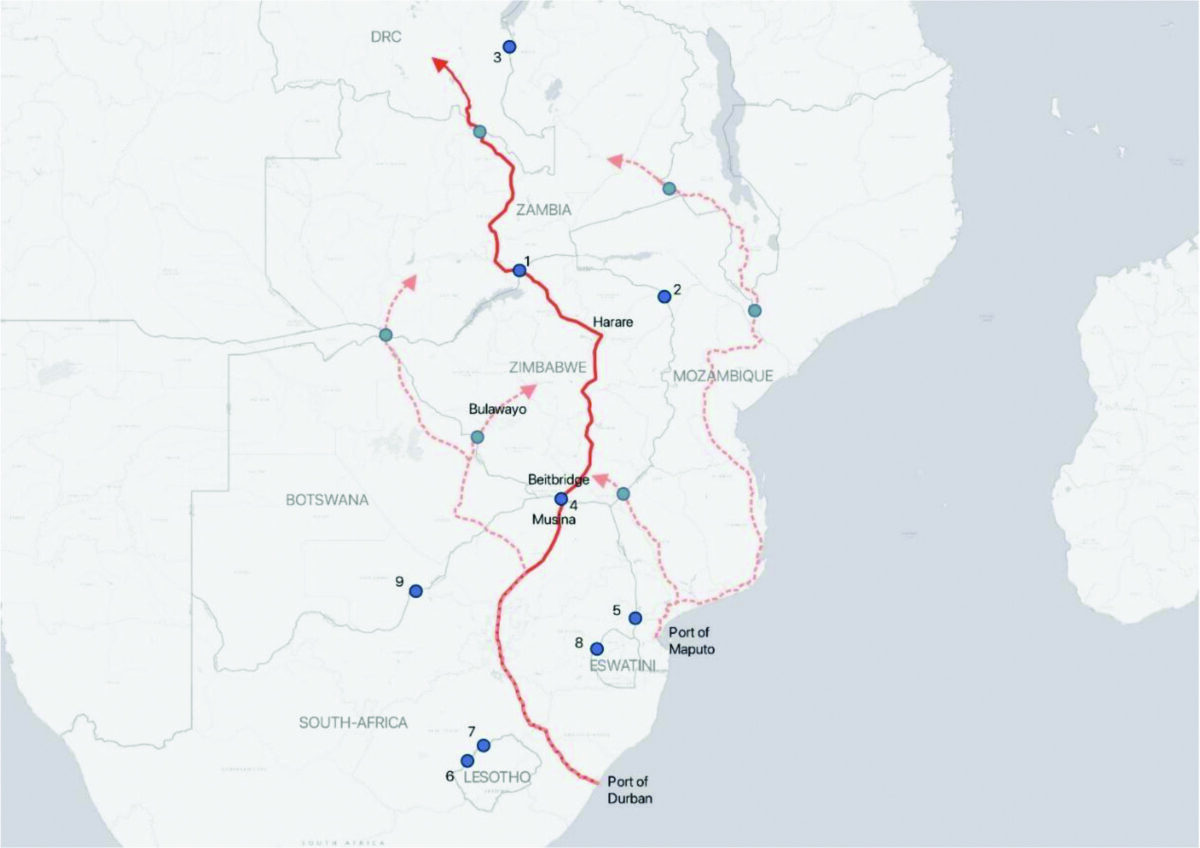
For many years, Beitbridge, Zimbabwe’s only official border crossing with South Africa, had inadequate infrastructure and facilities leading to significant congestion delays in the movement of people and goods. The outdated systems and ageing infrastructure were unable to cope with the huge rise in traffic numbers and increase in cross-border trade. Beitbridge is one of Africa’s busiest border crossings, seeing more than 13,000 travellers and more than 400 buses and 750 trucks crossing daily.
In 2020, the Private Infrastructure Development Group (PIDG), through its Emerging Africa & Asia Infrastructure Fund invested USD 44m to fund the border post’s modernisation to stimulate trade in the Southern African Development Community.
The project was the first public private partnership (PPP) investment in this asset type in the region. In 2024, PIDG partnered with Steward Redqueen to conduct an independent evaluation of the project’s developmental impact after its first year of operations, which revealed that it has had significant positive impact in several areas.
Firstly, Zimborders has created a blueprint for PPP border infrastructure. While traditionally border crossings are run by governments, this PPP project has demonstrated that they can be successfully run by private entities, thereby relieving pressure on constrained public finances. Since this project was first approved, nine other PPPs of border crossings have been announced on the borders of Botswana, Eswatini, Lesotho, Mozambique, South Africa and Zimbabwe. Knowledge gained and capacity built from the project are expected to stay in the region, as key management staff have tendered on subsequent projects.
The project’s construction phase was estimated to have brought USD 56m of private foreign capital into Zimbabwe’s economy through direct project spend and value added through the upstream supply chain. Throughout the construction phase, the project company employed an average of 990 people monthly, with 14 per cent of these jobs held by women. During operations, the project is estimated to make a total annualised contribution of USD 17m to Zimbabwe’s economy (direct operation spend and indirect value added), creating sustained surplus value. 315 jobs are supported directly in operation, and the majority of those supported are women (53 per cent).
There has been an increase in economic opportunities for informal women group traders moving their product across the border, while there has been a drop in informal traders using smaller vehicles transporting goods.

Commercial truck driver queues in front of the border post (November 2024).
There has also been a significant reduction in processing times and congestion for drivers due to more efficient infrastructure and clearing systems. Non-commercial drivers now cross the border in an average of three hours. For commercial drivers, the median crossing time is now 14 hours, which is a considerable reduction compared to an average of 35-65 hours previously spent crossing the border.

Local residents and women cross-border traders, carrying goods from the South African side of the border (Musina) to the Zimbabwean side (Beitbridge).
Another important impact observed is in improvements in end-user experience, particularly for women. End-users have expressed satisfaction with the border services, highlighting the availability of sanitation services and purpose-built health facilities. The evaluation also noted improvements in safety for women, from inclusive design features such as lighting to adequate gender-segregated toilets. Estimates are that 95 per cent of people utilising the pedestrian terminal are women day trippers. The improvements have positively impacted their livelihood and financial independence, and also led to safety improvements compared to prior illegal crossings. The border crossing has also broadly improved the experience for disabled people.
The reduction in illegal cross border trade has contributed to a substantial increase in government revenues to the Government of Zimbabwe. This has sizeably supported Zimbabwe’s need for foreign currency reserves.
Through the PPP structure, the project has also provided climate-resilient infrastructure improvements for the town of Beitbridge (non-core works). Structures supported include a water reservoir, oxidation ponds, a fire station, a staff village and an animal and quarantine building, some of which were in place prior to the completion of the project and help improve emergency preparedness for stresses related to extreme weather.
In summary, the independent evaluation found that the Zimborders project demonstrates the feasibility of public-private partnership investments in this asset type, has strengthened the regional trade system, and has had significant positive impacts on the local community, the Zimbabwe economy and the experience of end-users of the crossing.